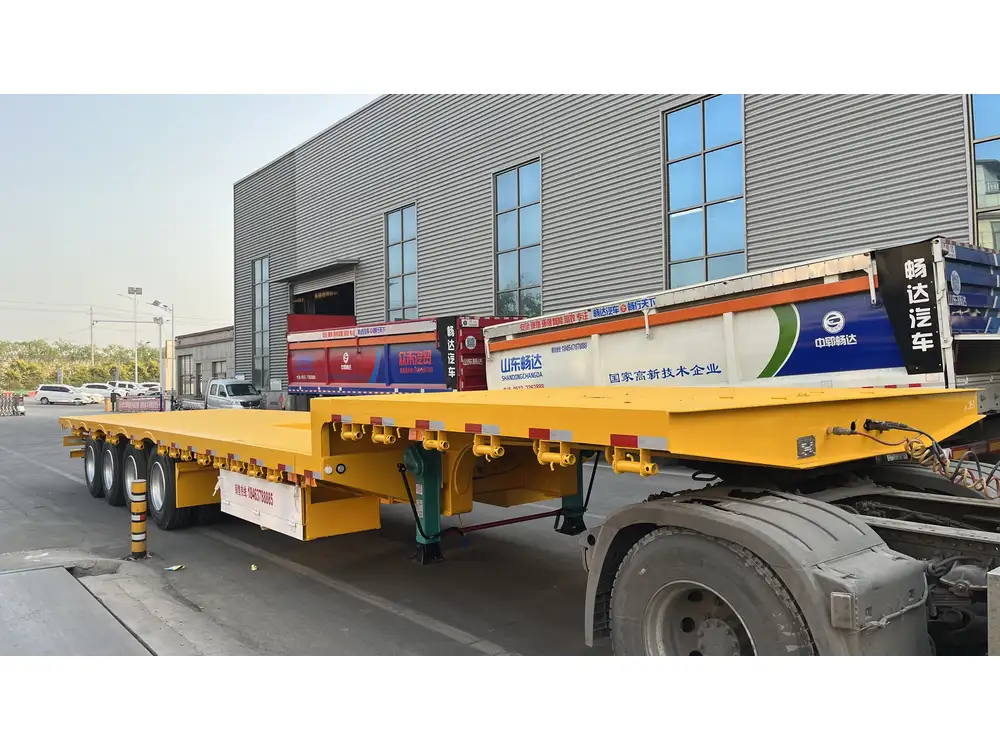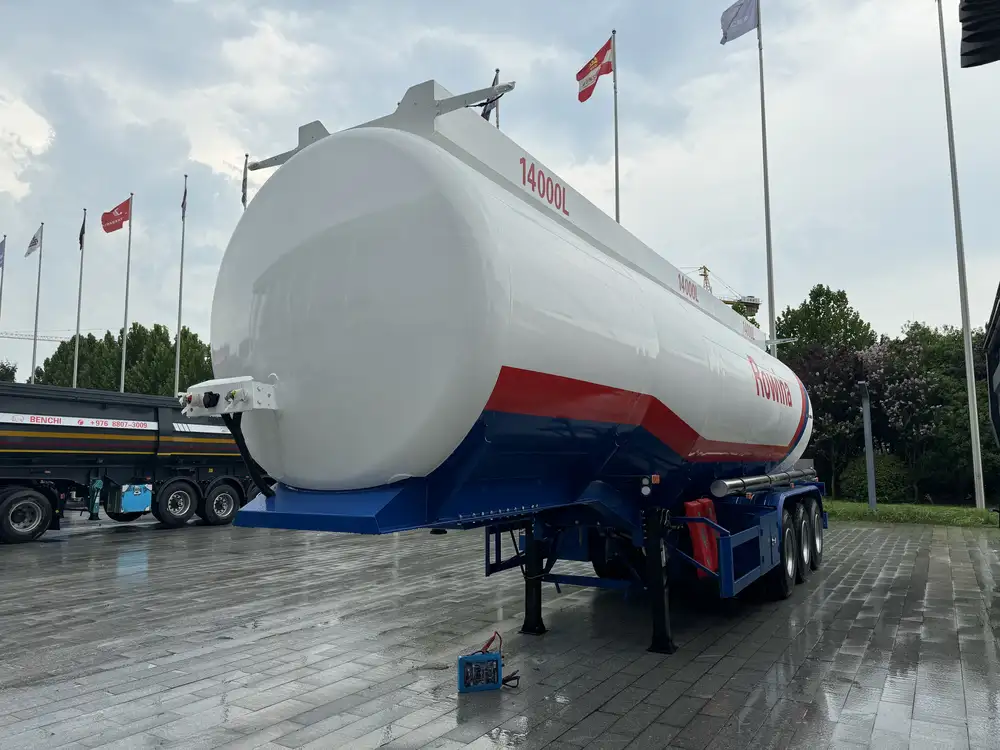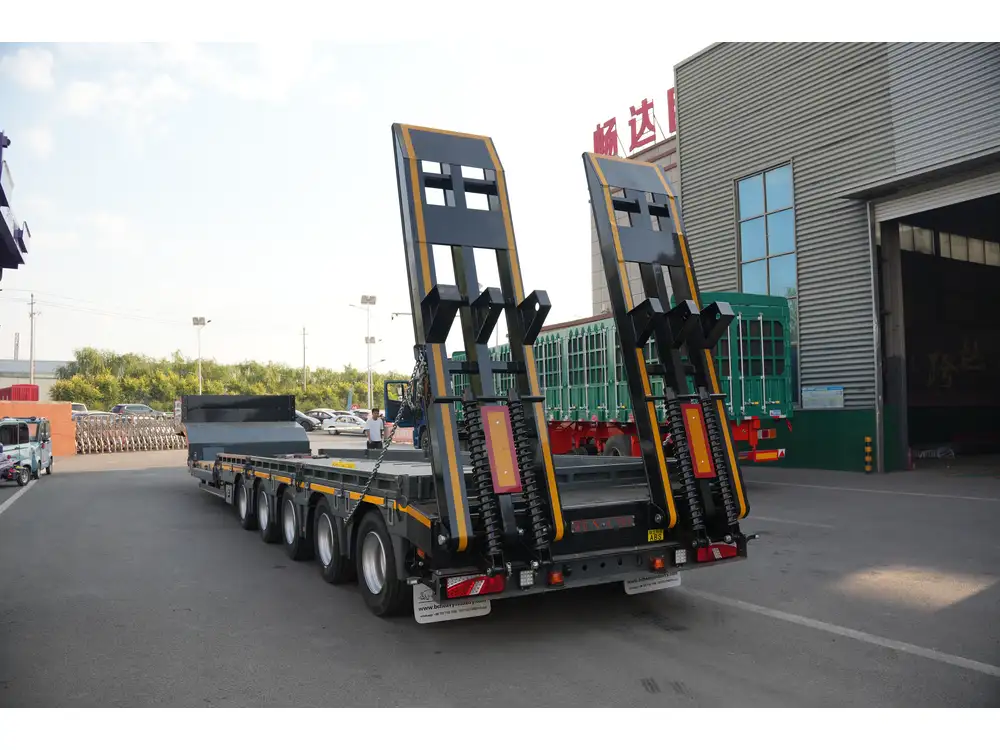When it comes to transporting vast quantities of goods, semi truck bulk trailers stand out as indispensable tools in the logistics and transportation industry. But what powers these formidable vehicles? What machinery makes it possible for bulk trailers to perform their critical functions efficiently and reliably? In this comprehensive guide, we delve deep into the intricate machinery behind semi truck bulk trailers, addressing common concerns, exploring various components, and ultimately helping users understand their significance in everyday commercial operations.
The Composition of a Semi Truck Bulk Trailer
Understanding the semi truck bulk trailer’s machinery requires an exploration of its core components. This section will outline the significant parts that work harmoniously to ensure optimal performance.
Key Components of a Bulk Trailer
Chassis
- The robust framework that supports the trailer, it must handle heavy loads while ensuring stability on the road.
- Typically constructed from high-strength steel, the chassis’s design aligns with specific load requirements.
Tipping Mechanism
- An essential feature for bulk trailers that handle materials such as grains or construction aggregates.
- Hydraulic cylinders activate tipping platforms, making unloading efficient and easy.
Pneumatic Systems
- Used particularly in bulk tank trailers designed for liquid and powder transport.
- Compressed air systems create suction to load products and expel them efficiently during unloading.
Axles and Suspension
- The axles bear the weight of the trailer while ensuring smooth movement.
- A robust suspension system is vital for maintaining control and absorbing road shocks.
Brake Systems
- Ensures both the truck’s and trailer’s safety through hydraulic or pneumatic systems.
- Advanced features such as anti-lock braking systems (ABS) are increasingly common.
Tires
- Engineered specifically for heavy loads, these tires are crucial for safety and efficiency.
- Optimal tread design enhances grip and reduces the risk of hydroplaning in wet conditions.

Specialized Machinery for Different Types of Bulk Trailers
Dry Bulk Trailers
- Often utilized for materials like grains, plastics, and powders.
- Machinery includes a pressure discharge system, allowing for quick unloading.
Liquid Bulk Trailers
- Comprise specialized tanks that transport liquids such as chemicals or fuel.
- Incorporate pumps and hoses as integral machinery for loading and unloading processes.
Refrigerated Bulk Trailers (Reefers)
- Equipped with refrigeration machinery to maintain temperature-controlled environments for sensitive cargo.
- Includes diesel-powered refrigeration units that regulate internal temperatures.
The Role of Power Sources: Tractors and Engines
Understanding the Semi Truck Engine
At the core of any semi truck is its engine, an intricate machine that powers the entire vehicle and trailer. Here, we break down the types of engines used in conjunction with bulk trailers.
Diesel Engines
- Predominantly used in semi trucks due to their durability and fuel efficiency.
- Provides high torque, essential for moving heavy loads, especially on inclines.
Alternative Fuel Engines
- Emerging technologies are introducing options such as natural gas or electric engines.
- Though less common, they do present environmental benefits and promise lower operating costs.

Transmission Systems: The Link Between Power and Performance
The transmission system of a semi truck plays a critical role in controlling the vehicle’s speed and torque, effective integration being crucial for bulk transportation.
Manual Transmission
- Traditional choice among truck drivers, offering better control over fuel consumption and power delivery.
- Requires skill to operate effectively, particularly with large loads.
Automatic Transmission
- Gaining popularity for ease of use, especially for long-haul drivers.
- Often designed with fuel efficiency in mind, adapting gear shifts based on load and terrain.
The Importance of Maintenance for Machinery
To ensure the efficiency and longevity of the machinery behind semi truck bulk trailers, regular maintenance is paramount. Here, we outline key areas to focus on:
Routine Checks and Servicing
Lubrication
- Vital for moving parts, particularly in the transmission and brake systems.
Tire Maintenance
- Regular inspections for wear and pressure checks help in avoiding blowouts and maintaining fuel efficiency.
Hydraulic System Inspections
- Essential for tipping mechanisms and pneumatic systems, ensuring reliability in loading and unloading.

Advanced Technology Solutions
Adopting modern technologies can significantly enhance the performance of bulk trailers. From telematics for real-time monitoring to predictive maintenance tools, these innovations allow for proactive adjustments and repairs, minimizing downtime and maximizing efficiency.
The Role of Regulations and Standards
Operating a semi truck bulk trailer involves adhering to stringent regulations and standards. Understanding these will give manufacturers and operators a clearer perspective on maintaining compliance and safety.
Safety Regulations
DOT Regulations
- Governed by the Department of Transportation, ensuring that all vehicles meet certain standards for safety and operation.
Environmental Compliance
- Ensuring that engines and machinery meet emissions standards helps to minimize environmental impact.

Load Regulations
- Understanding the maximum weight limits is crucial. Overloaded trailers pose significant hazards and can lead to accidents, costly fines, and damage to equipment.
Comparative Analysis: Manufacturers’ Options
Choosing the right bulk trailer manufacturer involves analyzing their offerings thoroughly. Below, we present a comparison of key factors to consider.
| Factor | Manufacturer A | Manufacturer B |
|---|---|---|
| Material Quality | High-strength steel | Lightweight aluminum |
| Customization Options | Extensive options available | Limited customization |
| Warranty Coverage | 5-year warranty | 3-year warranty |
| Tech Integration | Advanced telematics | Basic monitoring systems |
| Customer Support | 24/7 availability | Business hours only |
Choosing the Right Trailer
Evaluate Needs
- Focus on load types, distance, and frequency of use to determine the right trailer type.
Long-term Costs vs. Initial Investment
- Consider repair costs, fuel efficiency, and potential for upgrades.

Addressing Common User Concerns
Navigating the complexities of semi truck bulk trailers can lead to many questions. Here we tackle some of the top concerns shared by users.
How to Maximize the Lifespan of Your Bulk Trailer?
- Regular inspections and servicing align with manufacturers’ recommendations and enhance performance.
- Investing in quality tires and brake systems improves safety and efficiency, reflecting in lower long-term costs.
What Should Be Done in Case of Machinery Failure?
- Emergency Protocols
- Having a clear set of procedures for equipment failure will minimize downtime.
- Service Contracts
- Engaging with specialists allows for quicker response times and efficient repairs.

How to Select the Right Bulk Trailer for Your Business Needs?
- Assess the types of goods transported and consult with experienced manufacturers or dealers to identify the best options.
Conclusion: The Machinery Behind Semi Truck Bulk Trailers
Understanding the machinery underlying semi truck bulk trailers reveals not only its complexity but also the significant role it plays in logistics and transport industries. From the robust chassis and reliable engines to the intricate hydraulic systems and safety mechanisms, each component synergizes to create efficient, reliable transportation solutions.
With rigorous maintenance practices, adherence to regulations, and informed decision-making regarding acquisition, businesses can maximize their operational efficiency and ensure long-term success in bulk transportation.
This thorough exploration empowers users with the knowledge they need to navigate the intricacies and challenges associated with semi truck bulk trailers effectively. By addressing common concerns and understanding the critical components involved, we aim to facilitate informed decisions and enhance overall satisfaction in this essential sector of the trucking industry.



